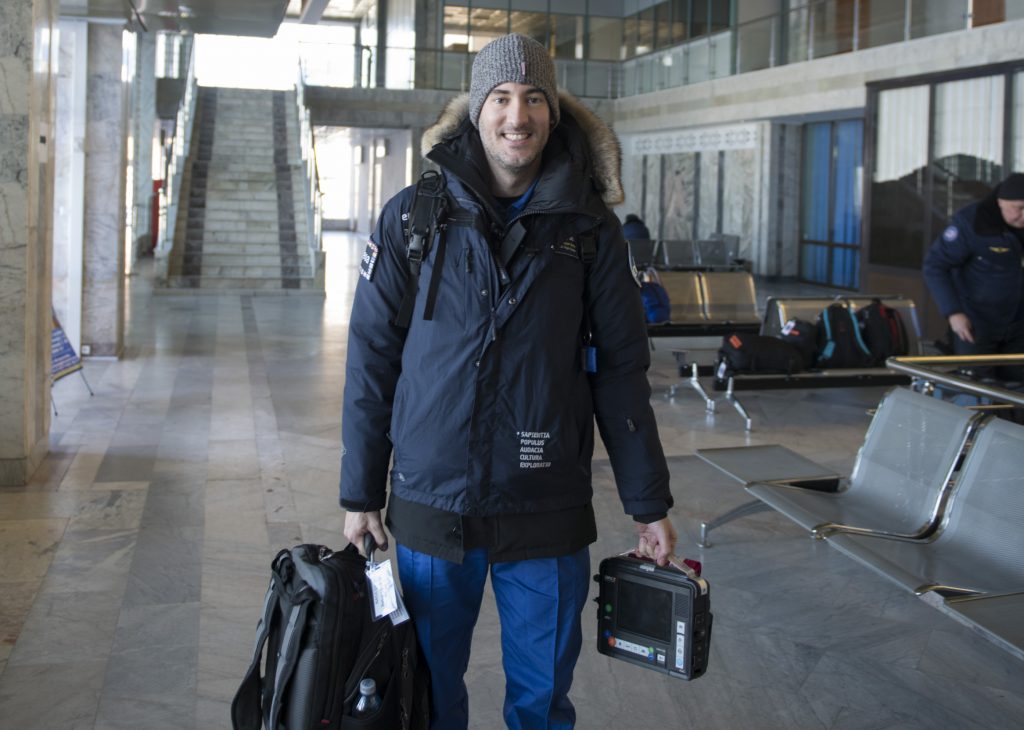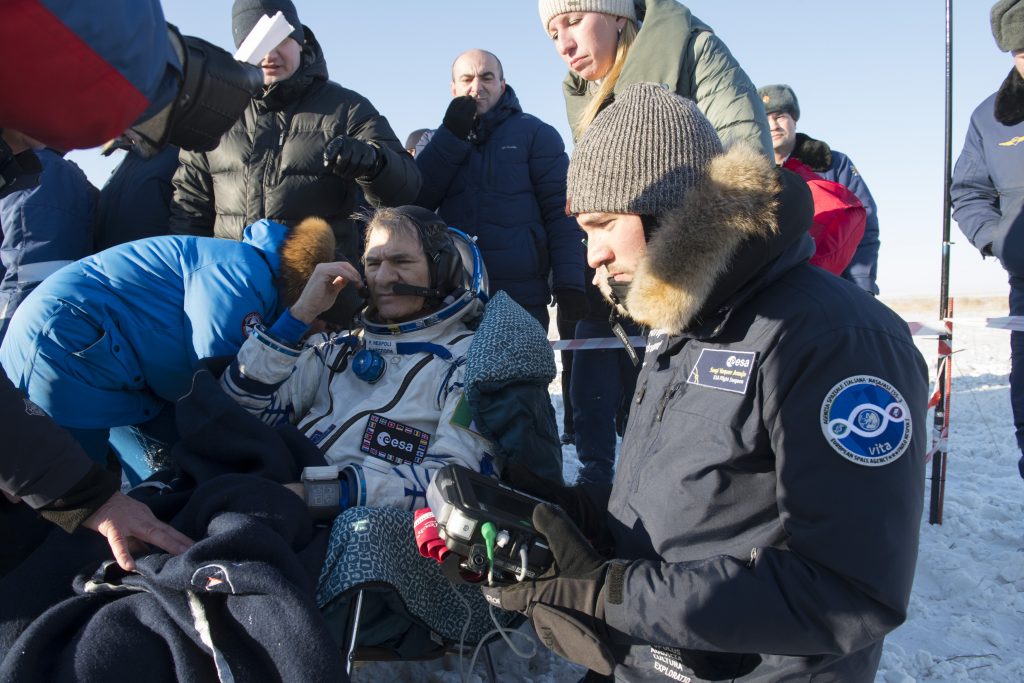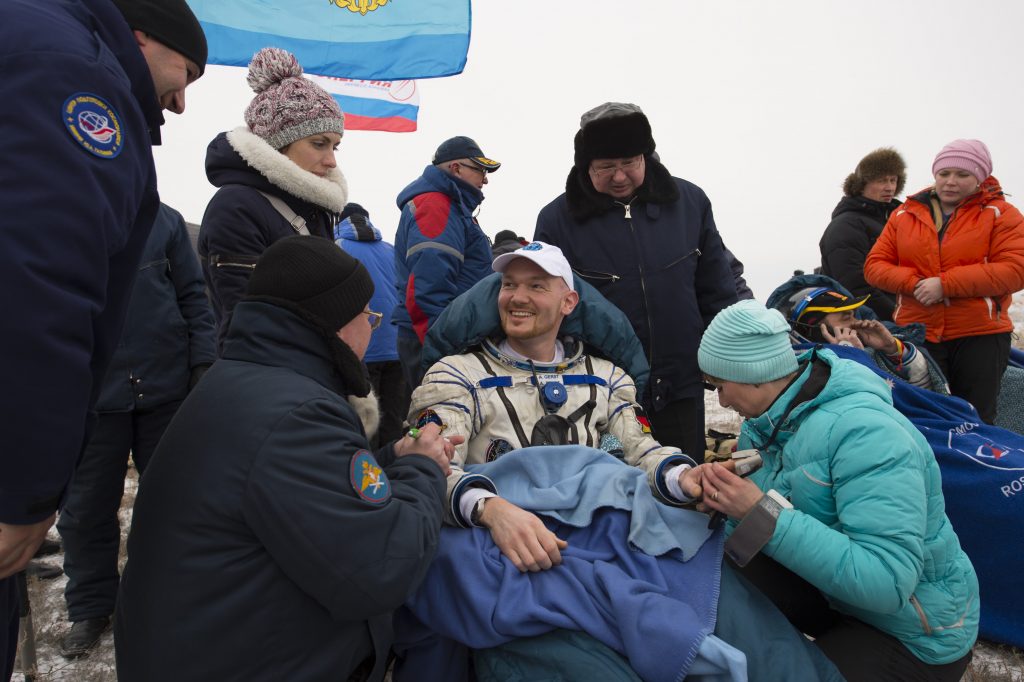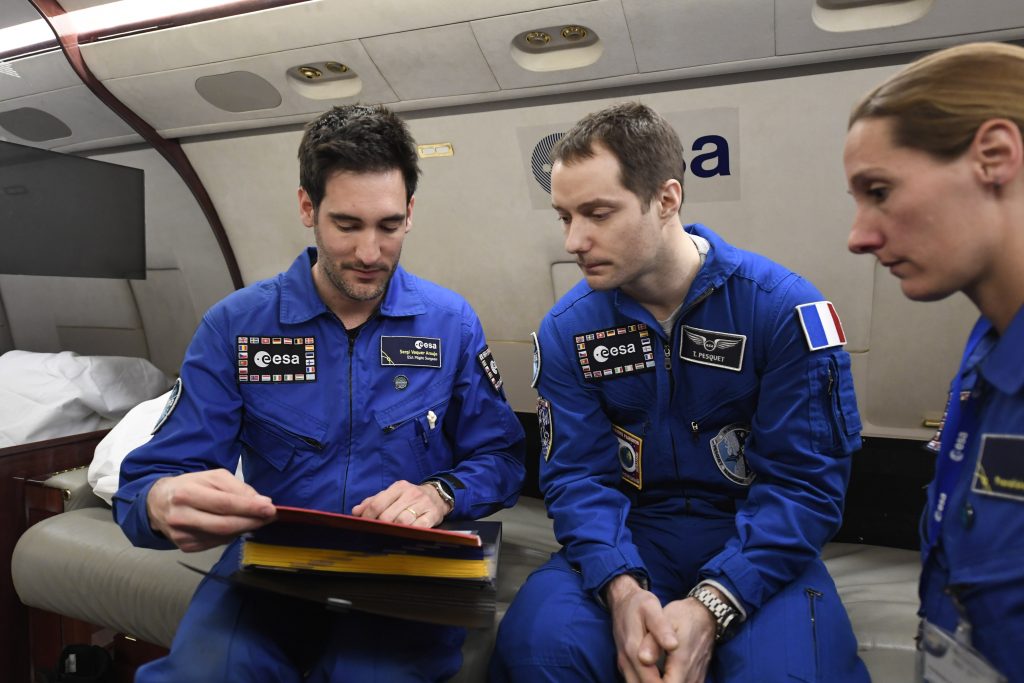Imagine living in a place where there is no such thing as up or down, where you can float effortlessly from one room to another and lift heavy objects with ease. It may sound idyllic, but life on board the International Space Station is not without its challenges. This includes the need to readapt when you return to Earth.
Sergi Vaquer is the prime ESA flight surgeon assigned to Alexander Gerst’s Horizons mission. As a trained emergency and intensive care medical specialist, it is his role to ensure Alexander remains physically and mentally fit at all stages of spaceflight.

ESA flight surgeon Sergi Vaquer. Credit: ESA/S.Corvaja
Along with ESA’s team of space medicine experts, Sergi also advocates for a safe environment in the days and weeks that follow. We asked how Alexander may be feeling when he returns to Earth.
Ask the doctor
“It is variable, but I am proud to say our astronauts generally come back in very good condition,” Sergi says.
“I believe this is down to proper preparation. The astronauts take it very seriously and do a lot of work to prepare physically before a mission. They also follow training protocols, exercising for a minimum of two hours a day on board.”
That said, returning to Earth after living and working in microgravity does have an impact on the body. One of the most obvious effects – albeit non-lethal – is vestibular disturbance. Astronauts also face a higher risk of fainting due to mixture of reduced ability to control their blood pressure, heart changes and dehydration.

Flight surgeon Sergi Vaquer performs a post-flight health check on ESA astronaut Paolo Nespoli. Credit: ESA/S.Corvaja
“Astronauts establish a new set point in space,” Sergi explains. “So, when they come back, they can be quite dizzy and experience sensations that are similar to seasickness. Any acceleration, especially with rotation, completely disorients the brain. This results in nausea and a very unstable gait.”
Though much of this clears within 2-3 days of landing, members of an astronaut’s medical team are on high alert in those early stages. They remain close behind or beside an astronaut at all times to prevent falls, as the astronaut readapts to Earth’s gravitational pull.
Other medical considerations include bone and muscle weakness caused by underuse. Sergi says exercise protocols on Station mean most astronauts keep their muscle capacity within the desired range, but there are some risks in regard to spinal injuries. This is because the postural muscles we use to stabilise ourselves 24 hours a day on Earth are not as heavily activated in space.
Astronauts may also be more susceptible to infection and illness due to a suppressed immune system.
“While we see that immune cells do not behave in the way they should in space, so far we haven’t had any severe infection on board the Space Station, so cell altered behavior is not directly transferable to immune protection” Sergi explains “we need to investigate this topic further but until we know more, we take precautions and implement a period of quarantine before and after flight.”

ESA astronaut Alexander Gerst post his Blue Dot mission in 2014. Credit: ESA/S.Corvaja
The road to Cologne
The human body is 60 percent water, but in space these fluids are redistributed. Astronauts also lose fluid volume, so an immediate focus for medical experts is making sure astronauts get enough fluids upon landing to combat any cardiovascular effects.
If necessary, they are also given medication for motion sickness before leaving the medical tent.
“Within around 30-45 minutes of the initial medical checks, we board the helicopters and fly back to Karaganda, Kazakhstan for an official welcoming ceremony,” Sergi says. “Astronauts usually sleep during this time because they are very tired.”
After the ceremony, Alexander will say goodbye to his Russian crewmate Sergei Prokopiev and board a NASA plane bound for Norway with astronaut Serena Auñón-Chancellor. He will be supported the entire way by ESA flight surgeon Maybritt Kuypers, who will then hand over to Sergi at the refuelling point in the Norwegian airport of Bodo.

Flight surgeon Sergi Vaquer provides medical support to ESA astronaut Thomas Pesquet on his flight back to Cologne, Germany. Credit: ESA/S.Corvaja
“We fly back to Cologne, Germany on a plane with extended capabilities to care for someone who may require medical attention,” Sergi says. “I am there to make sure Alexander has everything he needs from a medical perspective. We will also start collecting scientific data for researchers and conducting the first medical tests that need to be done after landing.”
Once Alexander arrives in Cologne, he will be transferred to the German Aerospace Centre’s (DLR) :envihab facility next to ESA’s astronaut centre. There he will undertake further tests such as blood draws, full medical assessments, electrocardiogram (ECG), MRI or stress tests among others to properly ascertain his medical status.
He will also be welcomed by family, friends and colleagues and enjoy some well-earned pizza before he finally sleeps in a real bed, ready for the rehabilitation that lies ahead.




Discussion: no comments